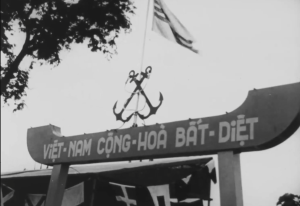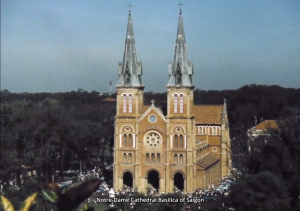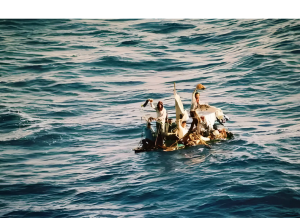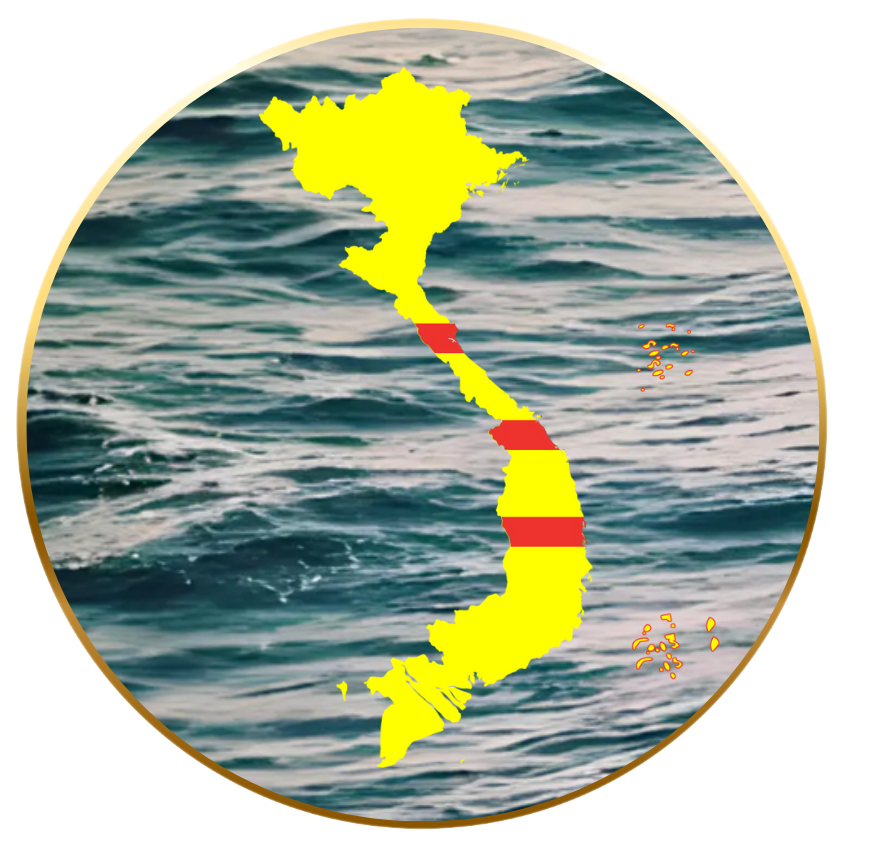Vietnam War: Through the South Vietnamese Eyes & Lives
- Home
- Vietnam War: Through the South Vietnamese Eyes & Lives
This April 30 marks the 50th anniversary of the end of the Vietnam War, a day most South Vietnamese refer to as Black April. The day will be commemorated with essays, books, conferences, and various events. As a Vietnamese person, I am frequently asked about the war. One piece of advice I often give is this: if you want to truly understand the conflict, avoid reading any books on Vietnam published before 2000. Much of the scholarship written before then was based on many false premises, such as the notion that Communist North Vietnam was a noble liberator, that Democratic South Vietnam was a corrupt American puppet, that the United States was an imperialist invader, and that American soldiers were cowardly, drug-addicted killers.
 After the Soviet Union’s collapse and the opening of KGB archives, researchers were able to uncover documents that provided new perspectives, dispelling many of these false narratives. Moreover, decades after their victory, the Communist victors themselves boasted about how they had fooled American media and the Western world.
After the Soviet Union’s collapse and the opening of KGB archives, researchers were able to uncover documents that provided new perspectives, dispelling many of these false narratives. Moreover, decades after their victory, the Communist victors themselves boasted about how they had fooled American media and the Western world.
Eight years ago, the Vietnamese American community experienced profound disappointment, distress, heartbreak, betrayal, and outrage after watching Ken Burns’ series on the Vietnam War. There is no question that Mr. Burns is a skilled documentary filmmaker. He claimed that his project took 10 years and $30 million to produce. Yet, his final work only recycled the same misconceptions, misunderstandings, and misinformation that have persisted for decades. It brought no new insights and didn’t even offer half-truths. Burns’ documentary repeated the one-sided narrative that the War was unnecessary, immoral, illegal, unwinnable, and a senseless loss of lives and resources. To put it simply, imagine a documentary about California that only highlights the problems of one neighborhood—drug addiction and homelessness—and claims that the entire state is overwhelmed by drug cartels, with Californians indifferent to their future and that of their children. That’s essentially what Burns’ documentary The Vietnam War was all about,
 Burns selectively chose interviewees and edited the footage in a way that emphasized the heroism of North Vietnam while glossing over South Vietnam’s struggle for freedom and independence from the Northern invasion. The voices of American soldiers who understood the stakes for the Republic of Vietnam were largely ignored. The perspective of the Republic of Vietnam—a sovereign nation with 20 million citizens—was completely excluded.
Burns selectively chose interviewees and edited the footage in a way that emphasized the heroism of North Vietnam while glossing over South Vietnam’s struggle for freedom and independence from the Northern invasion. The voices of American soldiers who understood the stakes for the Republic of Vietnam were largely ignored. The perspective of the Republic of Vietnam—a sovereign nation with 20 million citizens—was completely excluded.
Burns’ film inspired many Vietnamese to share the truth about the war from our own personal experiences and perspectives. We lived through its horrors, survived its brutal aftermath, and continue to be haunted by our losses.
 For the past six years, a group of us has been working to produce a documentary series titled Vietnam War: Through Our Vietnamese Eyes & Lives. We’ve interviewed nearly 100 eyewitnesses, including those who fought against the French colonialists in the 1940s, North Vietnamese writers who survived the bloody Land Reform in the 1950s, and South Vietnamese soldiers who dedicated their lives to fighting communism in the 1960s and 70s. Viewers will hear real, firsthand accounts from people who lived through the war, not just about the conflict itself but also about what happened afterward: the Reeducation Camps, the Boat People, and more. Our documentary series will be as factual and historically accurate as possible, supported by extensive research and records.
For the past six years, a group of us has been working to produce a documentary series titled Vietnam War: Through Our Vietnamese Eyes & Lives. We’ve interviewed nearly 100 eyewitnesses, including those who fought against the French colonialists in the 1940s, North Vietnamese writers who survived the bloody Land Reform in the 1950s, and South Vietnamese soldiers who dedicated their lives to fighting communism in the 1960s and 70s. Viewers will hear real, firsthand accounts from people who lived through the war, not just about the conflict itself but also about what happened afterward: the Reeducation Camps, the Boat People, and more. Our documentary series will be as factual and historically accurate as possible, supported by extensive research and records.
The first part of the series is almost complete, but we still need a bit more support. I hope you will consider helping us by making a tax-deductible donation to the Next Vietnam Projects Foundation. Your support would mean a great deal to us. More information is available at
https://www.gofundme.com/f/vietnam-war-a-factual-history
or write nam@nextvietnam.org

